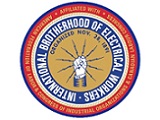Woman Claims Retaliation for Opposing Discrimination Against Another Employee
Post Views 1A woman sued her former employer for retaliation due to her opposition of racial discrimination – discrimination aimed at another employee. The arguments in court relied mostly on the validity of the evidence presented.
The woman worked as an administrative assistant at the International Brotherhood of Electrical Workers, Local 159 (IBEW) in Madison, WI. She had been an employee of the union for more than 30 years and was described by her colleagues as a good worker, with a former supervisor citing her job performance as “outstanding.”
In 2006, an African American employee filed a complaint of racial discrimination with the Madison Equal Opportunities Commission. He claimed that his information was removed from the IBEW referral book and his union fee was returned to him, both based on his race. The plaintiff learned that her supervisor had permitted a white employee to sign the referral book without paying the initial fee, so she questioned him about the alleged discrimination.
What reportedly followed was the woman’s loss of essential job duties, denial of overtime and a hostile work environment, all at the hands of her supervisor, who had previously neither criticized nor disciplined her. Numerous disciplinary actions ensued, including the supervisor accusing the woman of frequent tardiness and suspending her without pay. She eventually took medical leave, asserting that her reason was the emotional stress created by her work environment. She filed her own complaint with the Commission and later took her case to a district court.

The IBEW responded with two motions: judgment as a matter of law under Federal Rule of Civil Procedure 50(b) or a new trial under Federal Rule of Civil Procedure 59(a). Both motions were denied. The plaintiff was awarded 202,396.76 dollars in damages.
The union appealed the decision. As appeals must be filed within a 30-day period, the appellate judges noted that they would only be able to rule on the dismissal of the two post-trial motions. The judgment regarding the woman’s suit was rendered nearly eight months prior to the IBEW’s appeal. The appeals court believed that the IBEW’s request for relief was closer to Rule 60(b)(6) – a general relief from judgment. The union had argued against the allowance of the woman’s evidence and claimed that there was “insufficient evidence” for the jury to make a decision. Appellate judges used these arguments in its ruling, as these are essentially what the district court was dismissing when it denied the motions for relief after its judgment was made. The appeals court agreed and affirmed the decision.
Woman Claims Retaliation for Opposing Discrimination Against Another Employee by Harrison Barnes



 Want to Attract Top Talent to Your Company? Have a Purpose
Want to Attract Top Talent to Your Company? Have a Purpose  What to Ask during a Performance Review
What to Ask during a Performance Review  Top 4 Most Effective Management Styles & How to Use Them
Top 4 Most Effective Management Styles & How to Use Them  Is Music in the Office Appropriate?
Is Music in the Office Appropriate?  10 Ways to Express Your Company Culture
10 Ways to Express Your Company Culture  How to Deal with Negative Employees
How to Deal with Negative Employees  5 Ways You Can Hire and Keep the Best Employees for Your Company
5 Ways You Can Hire and Keep the Best Employees for Your Company  Overwhelmed at Work? 7 Simple Strategies to Make Things Better
Overwhelmed at Work? 7 Simple Strategies to Make Things Better